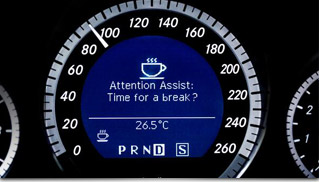 In 2013, fatalities in the United States due to car accidents totaled 32,719. While no exact number exists for the percentage of that number that is due to driver fatigue, insurance companies often attribute it to about 10%. Essentially that means that almost 3300 people per year die as a result of falling asleep at the wheel.
In 2013, fatalities in the United States due to car accidents totaled 32,719. While no exact number exists for the percentage of that number that is due to driver fatigue, insurance companies often attribute it to about 10%. Essentially that means that almost 3300 people per year die as a result of falling asleep at the wheel.
Wouldn’t it be nice if technology in your car could sense when you were falling asleep behind the wheel and woke you up before an accident occurred? That is the concept around a technology being developed by Harke, a European technology consortium.
Harken explains that they have a set of smart textiles: “a combination of fibers with electrical properties” worked into the seat belt and seat covers. Utilizing these conductors, the driver’s heart and breathing rates can be monitored and analyzed by sophisticated signal processing units. If it appears that the drive is nodding off, a “wake up” alarm can be sounded. This alarm could be everything from an audible noise to a vibrating steering wheel.
How accurate is it, you might wonder? “The rhythm of heart beats, specifically heart rate and heart rate variability, are good indicators of concentration and wakefulness,” states a researcher at Harkin, “whereas the decrement of respiration rate has proved to be correlated with increasing fatigue in monotonous driving.”
Press Releases from Harkin state that the system has “been tested by users in closed track tests, in order to prove its effectiveness under real-life conditions” and is moving into testing in “real traffic scenarios”. If this technology works as well as expected, a vast number of lives could be saved every year.
Source: Kayser Nissan